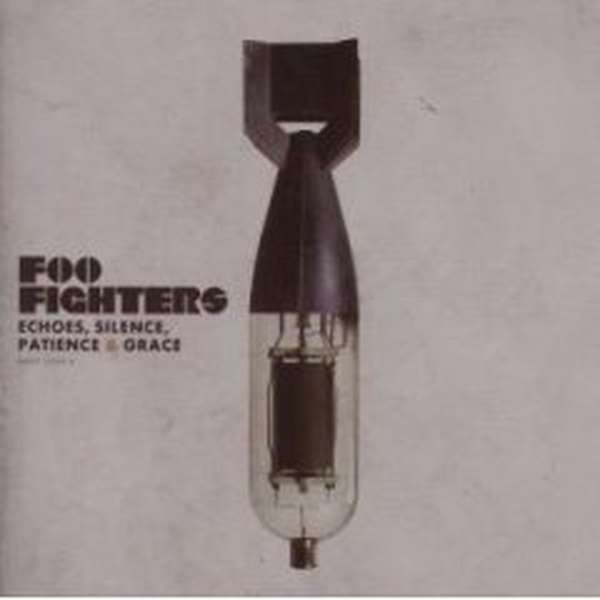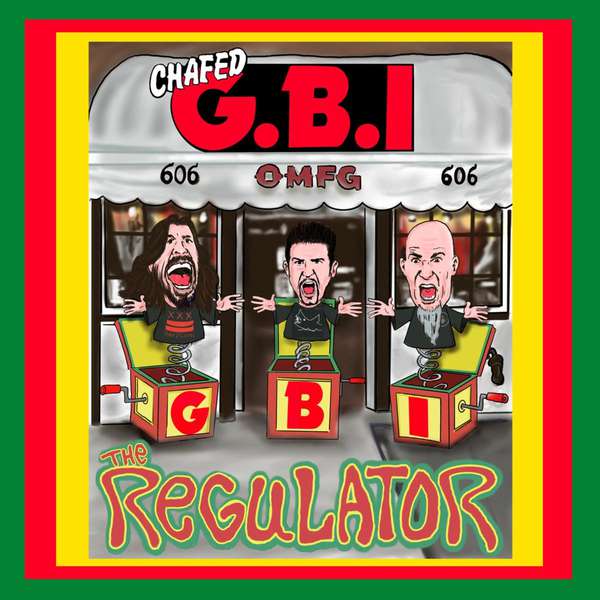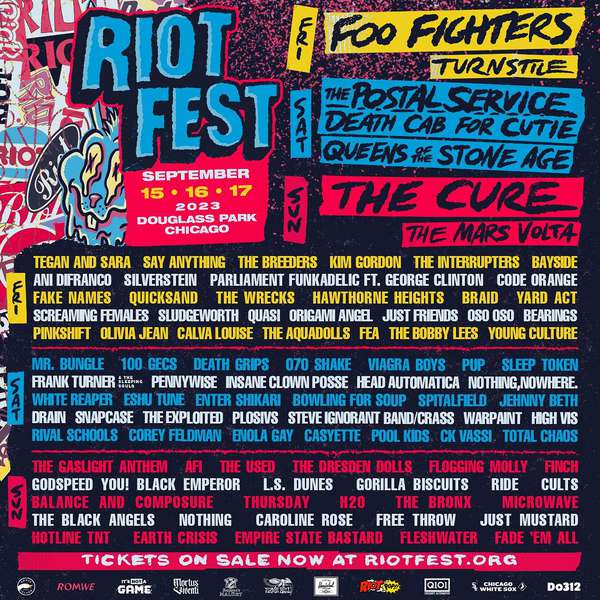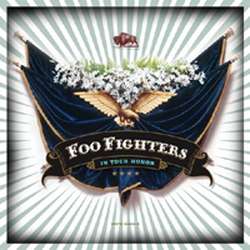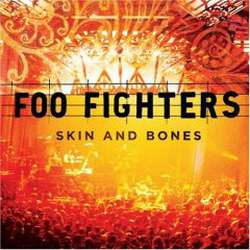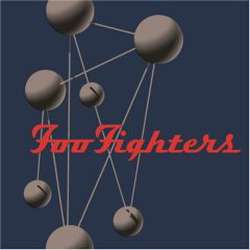In their twelve or so years as a band, Foo Fighters have had a more than respectable career. This is equally impressive as it would seem that no one ever thought it would last, including frontman/founder Dave Grohl. As the sole member at the time, Grohl recorded all the instruments and vocals for the 1995 eponymous debut album, adding a "touring band" only after the fact, including drummer William Goldsmith and bassist Nate Mendel who were "borrowed" from alternative band (back when that phrase still had meaning) Sunny Day Real Estate.
What was initially regarded as a side project was found to be a full fledged commitment with the band's follow-up, The Colour and the Shape. Mendel chose to make the commitment and he remains in his forever-unsung hero position behind the bass to this day. Goldsmith, with much speculation from the punditocracy but for reasons really known only to Grohl and himself, chose to return to an illustrious career selling Real Estate.
The Colour and the Shape turned out to be a success on every level - both artistically and financially. This was not an accident. Outstanding songs, relentless radio airplay and touring, and memorable videos which showcased the band's distinct sense of humor (and copied by pretty much every band on the rock charts since) all contributed to the album's benchmark status certainly in the band's history and some would argue in music history in general.
Every subsequent album that the Foo Fighters have released has been compared to The Colour and the Shape and in doing so, every subsequent album has fallen short in those comparisons but given a passing grade on their own merits. This is despite each album, while never achieving the status of bad (although 1999's There is Nothing Left to Lose came pretty darn close) have been wildly uneven, with each album usually a balance between songs that can be counted among the group's best - "M.I.A.", "Come Back", "Times Like These" - and those that even diehard fans of the band could probably care less if they ever heard again - "Overdrive", "Gimme Stitches", "Live-In Skin".
Grohl has been very upfront and honest in this regard. In interviews after the fact, Grohl has stated his dissatisfaction with previous albums - not finding fault with their sales performance, mind you - and is more than man enough to question his own performance and abilities. It's hard to think as a man as accomplished as Dave Grohl to be unsure of himself, but he has his moments like anyone else. Maybe "unsure" isn't the right word. While it's no secret that while Foo Fighters is above all else, Grohl's band, regardless of the high caliber of the people surrounding him - but he also knows full well that the buck stops with him when fault is to be found. As such, every album has had that anvil of diffidence dangling above, with the looming threat that "this could be the last album".
Granted, none of this has prevented them from becoming one of the most well known rock bands around but such second-guessing resulted in the artistic rut that Foo Fighters then found themselves in. The formula, while successful on a commercial scale just became stagnant and with Grohl taking a break to tour with Queens of the Stone Age, 2002's One By One truly looked to be the band's swansong. It was as if Grohl saw the writing on the wall and knew that if things didn't change drastically, he was going to be a solo artist once again.
2005's In Your Honor was the result of that change - a two-disc set comprised of one half electric and one half acoustic songs that proved to be the shot in the arm that Grohl and his bandmates were looking for. While the first "rock" set was more of what the band had come to be known for (though more consistent than their last couple of releases), it was disc two that showcased just how serious the band was to kick open those doors of perception and provide an album of beautiful numbers, most of which bordered on the sublime. This was then followed up by last year's Skin and Bones, a live acoustic set of both new songs and reworkings of old favorites. What could have easily been dismissed as yet-another meandering/pandering "unplugged" album for the masses is one of the best live albums ever, period.
So now we have this reinvigorated, rejuvenated band riding high on both the fiscal and artistic integrity of their last effort, more sure of themselves than ever before that they can break the chains, shatter the mold - not afraid to experiment and deviate from the norm they'd created for themselves. The result of this awakening is Echoes, Silence, Patience and Grace, an experimental album in so much as it's the most diverse the band has ever allowed themselves to be on a single album. Sure, these experiments have been conducted between albums, and more commonly on their ever-prolific b-Sides, a three-disc minimum box set of which could so easily be compiled are you listening Mr. Grohl??
Echoes, Silence, Patience and Grace leads off with what has become the first single from the album, "The Pretender" - a no-holds-barred rocker with an unbelievably catchy chorus that's one of the strongest singles of theirs to be released in quite a while and as such, one of the best songs on the album. Slowing the tempo immediately afterwards like a good cold shower is "Let it Die," a beautifully arranged acoustic number that could just as easily wound up on Skin and Bones. "Erase/Replace" is musically memorable only in the sense that you'll remember "Low" off of One By One when you hear it. Grohl's lyrics have never been the deepest, most profound or even the most original, but the man has an innate talent to create a single line every so often that'll stick with you through the years (1997's "February Stars" is a prime exampleOne day I'll have enough to get more).
Grohl also has a way of taking well-worn clichéd subjects most notably love and loss and spinning them to sound like one in the same, often using recurring themes that carry over from song to song, album to album - sometimes cropping up in unlikely places, with many threads passed on from songs long gone creating a full-circle effect. In this instance of "Erase/Replace", Erased everyone I've replaced - In the end they're all gone from "Normal," one of the best songs of the Foo Fighters' ever-growing catalogue but criminally remanded to a mere b-Side accompanying the "Times Like These" single.
Cut through all the hullabaloo and this album is really about change - a change in sound; those always hoping for an album of watershed moments are sure to be disappointed. This is the quietest record the band has ever recorded that hasn't been specifically billed as "acoustic". Both Grohl and drummer Taylor Hawkins bust out the piano on a couple of tunes, one of which being "Statues" - a song that you almost have to double-check the liner notes to make sure the credit doesn't read "Lennon/McCartney".
It's about a change in perception in both the artists' perception of themselves and how fans both long-time and short-term are sure to view this release. A change in priorities - listen to the lyrics in both southern-rock flavored "Summer's End" and album closer "Home." These songs are about a man not quite as enamored with the touring lifestyle as he once may have been. After all, this man has a family now and family is always a great catalyst for making those lifestyle choices abundantly clear.
This could very well be the band's last album, but I hope not. This is a band that still has a lot to offer their fans, both young and old and albums like this will, regardless of chart positioning, have more of an impact on how they remember the Foo Fighters than any album of "anthems" ever will.
